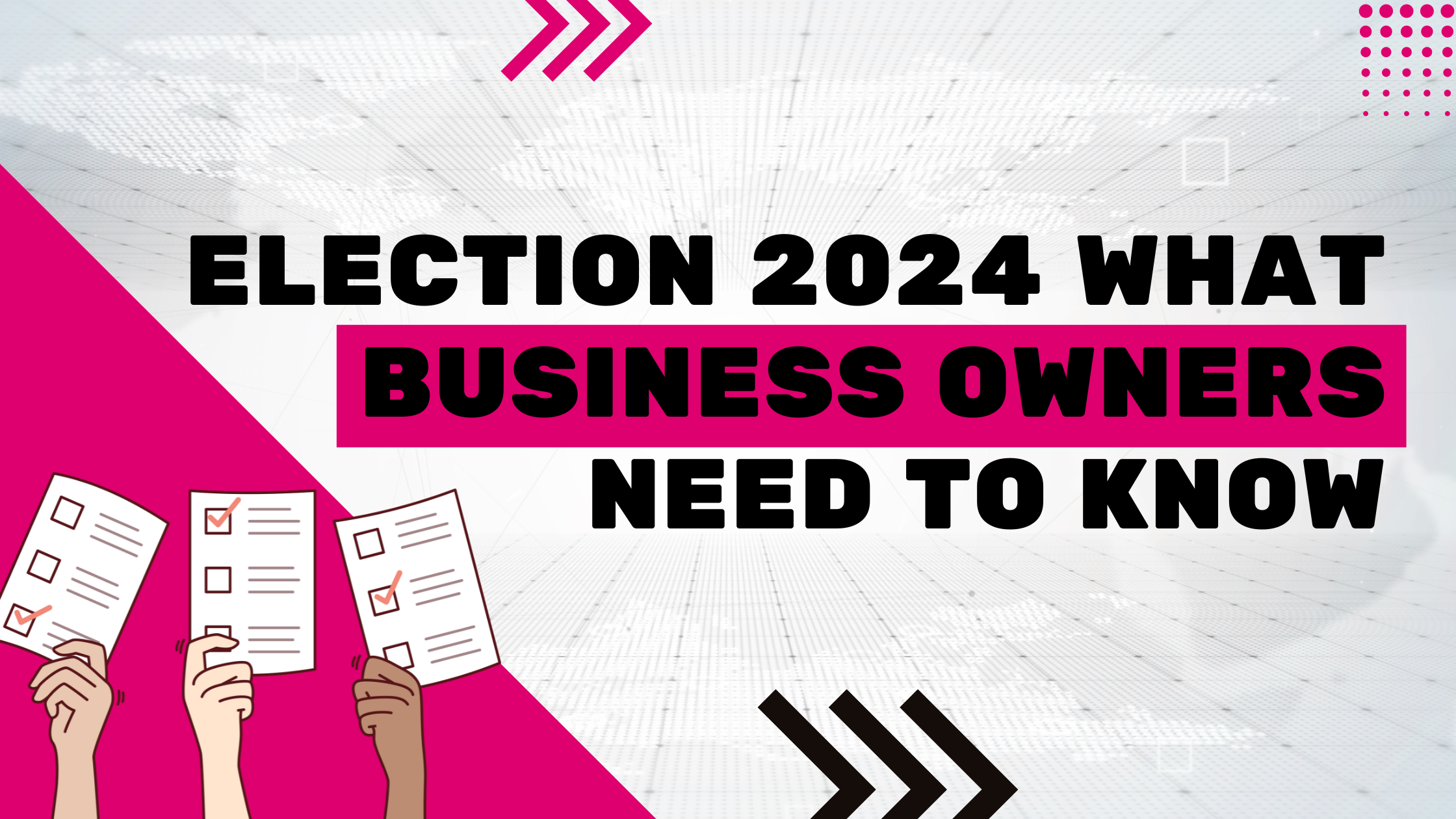Election 2024: What Business Owners Need to Know
As the 2024 election approaches, business owners across the UK are keen to understand how potential changes in government policies might impact their operations. The outcome of this election could bring about significant shifts in economic, tax, and regulatory environments. To help you stay informed and prepared, we’ve outlined key considerations and potential impacts for business owners.
Economic Policies
Taxation Changes
One of the most significant areas where elections can impact businesses is taxation. Different political parties often have varying approaches to corporate taxes, VAT, and other business-related levies. It’s essential to stay informed about each party’s tax proposals:
- Corporate Tax Rates: Changes in corporate tax rates can directly affect your profitability. Watch for proposed increases or decreases in these rates and consider their implications for your financial planning.
- VAT Adjustments: Shifts in VAT rates can influence your pricing strategy and cash flow. Keep an eye on proposed changes and plan accordingly.
- Business Reliefs and Incentives: Look for any new reliefs or incentives aimed at small and medium-sized enterprises (SMEs). These can provide valuable opportunities for growth and investment.
Employment and Labour Policies
Labour policies, including those related to the minimum wage, worker rights, and employment regulations, can significantly impact your business operations:
- Minimum Wage Adjustments: Increases in the minimum wage can raise your labour costs. It’s crucial to factor these potential changes into your budgeting and staffing plans.
- Worker Rights: Enhanced worker rights and protections may require adjustments to your HR policies and practices. Ensure you understand any new regulations to remain compliant.
- Employment Contracts and Benefits: Changes in laws regarding employment contracts and benefits can affect your employee relations and retention strategies.
Regulatory Environment
The regulatory landscape is another area that can undergo significant changes following an election. Here are some key areas to monitor:
- Health and Safety Regulations: New or revised health and safety regulations can impact your operational procedures and compliance requirements.
- Environmental Regulations: With increasing focus on sustainability, expect potential changes in environmental regulations that could affect your business practices and reporting obligations.
- Industry-Specific Regulations: If you operate in a highly regulated industry, such as finance or healthcare, stay informed about any sector-specific regulatory changes that could impact your business.
Trade and International Relations
The UK’s trade policies and international relations can influence your supply chain, export opportunities, and overall market stability:
- Trade Agreements: New trade agreements or changes to existing ones can open up new markets or impose new barriers. Keep an eye on proposed trade policies and consider how they might affect your business.
- Import and Export Regulations: Adjustments to import and export regulations can impact your supply chain logistics and costs. Stay informed to mitigate potential disruptions.
- International Relations: Geopolitical shifts and changes in international relations can influence market conditions and business confidence. Monitor these developments to adapt your strategies accordingly.
Financial Markets and Investment Climate
The election outcome can also influence the broader financial markets and investment climate:
- Market Stability: Political uncertainty can lead to market volatility. Be prepared for potential fluctuations in share prices, interest rates, and currency exchange rates.
- Investment Opportunities: Changes in government policies can create new investment opportunities or risks. Stay informed about potential shifts in the investment landscape to make informed decisions.
- Access to Finance: Monitor any proposed changes to government-backed finance schemes and support for businesses. These can provide crucial funding opportunities for growth and expansion.
Preparing for the Election Outcome
While it’s impossible to predict the exact outcome of the 2024 election, proactive planning can help mitigate risks and position your business for success:
- Stay Informed: Regularly update yourself on the latest news and developments related to the election. Follow reliable sources and consider joining business networks or associations that provide insights and analysis.
- Scenario Planning: Develop contingency plans for different election outcomes. Consider how changes in policies might impact your business and identify strategies to address potential challenges.
- Engage with Stakeholders: Communicate with your stakeholders, including employees, customers, and suppliers, to understand their concerns and expectations. Keeping an open line of communication can help build resilience and trust.
- Seek Professional Advice: Consult with financial advisors, accountants, and legal experts to navigate potential changes in the regulatory and economic environment. Professional guidance can help you make informed decisions and stay compliant.
Conclusion
The 2024 election presents both opportunities and challenges for business owners. By staying informed and prepared, you can navigate potential changes and position your business for continued success. At 1 Accounts, we’re committed to helping you understand and adapt to the evolving business landscape. If you have any questions or need assistance with your financial planning, please don’t hesitate to contact us.




